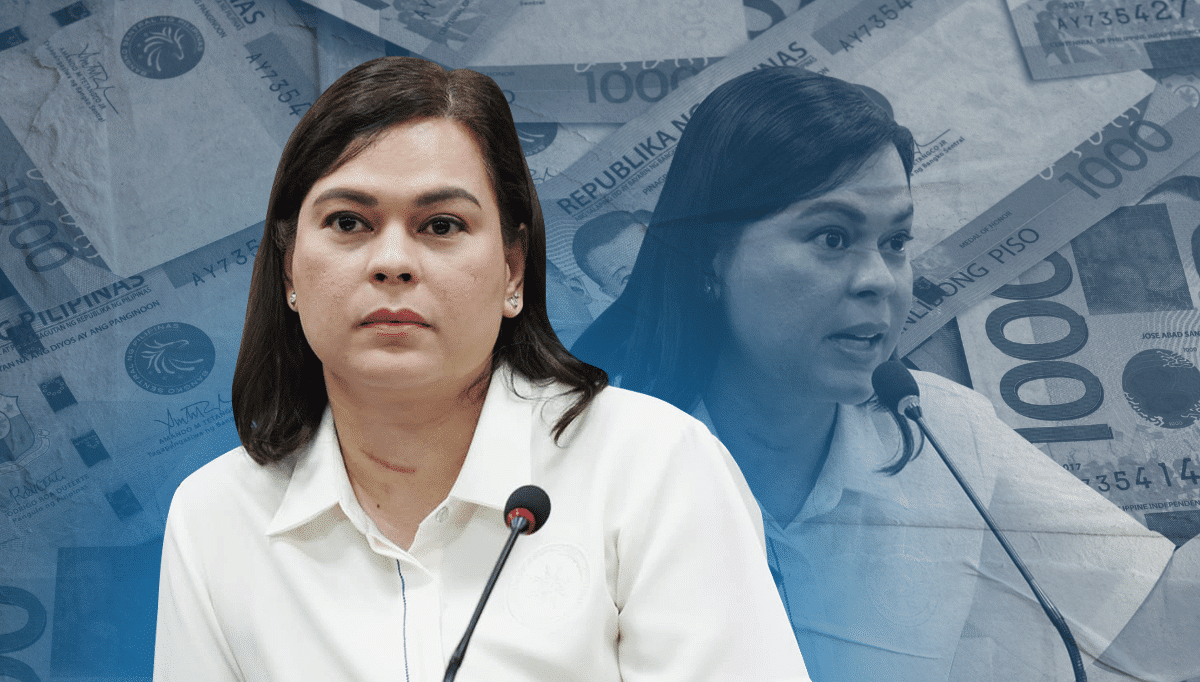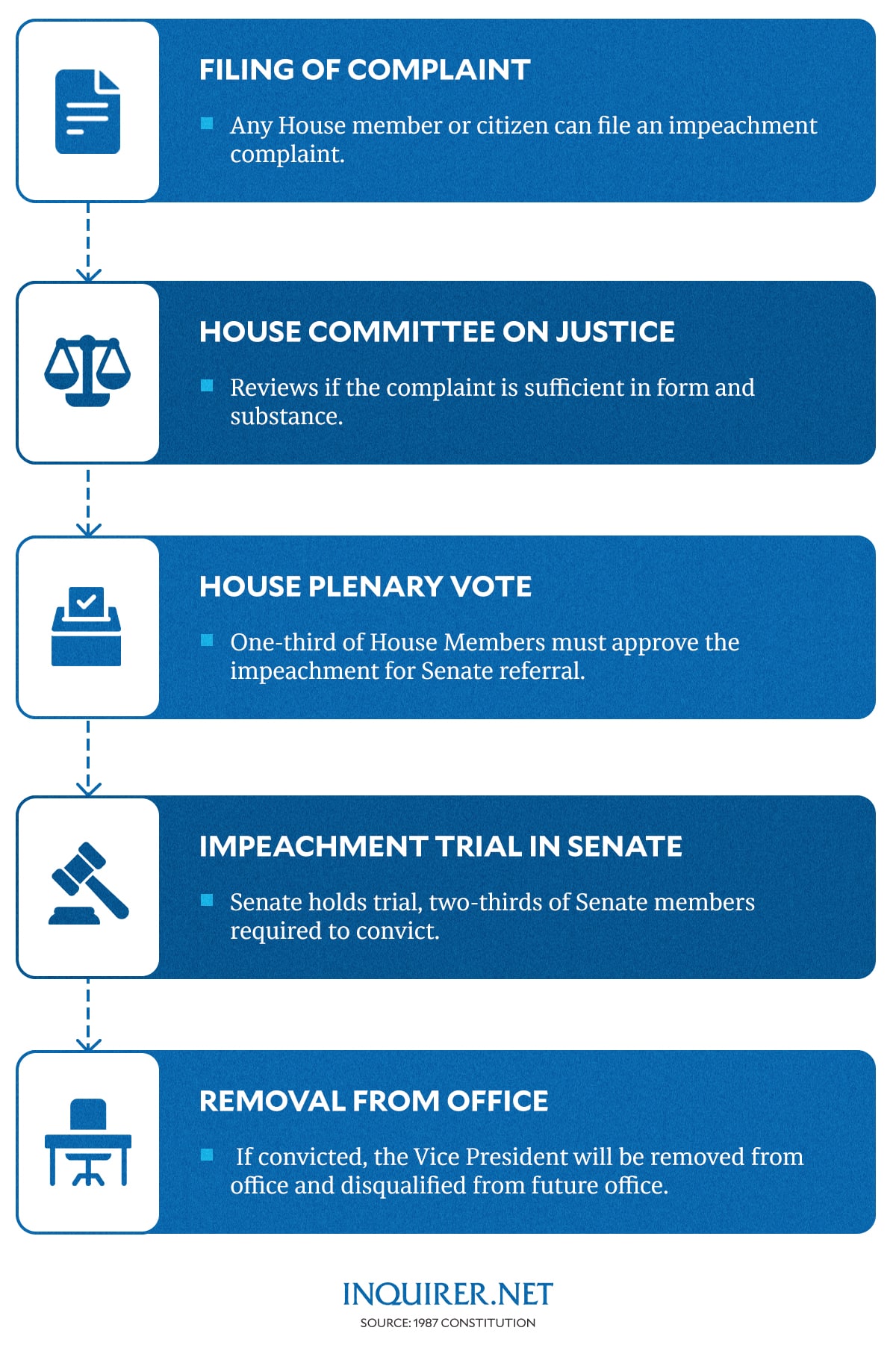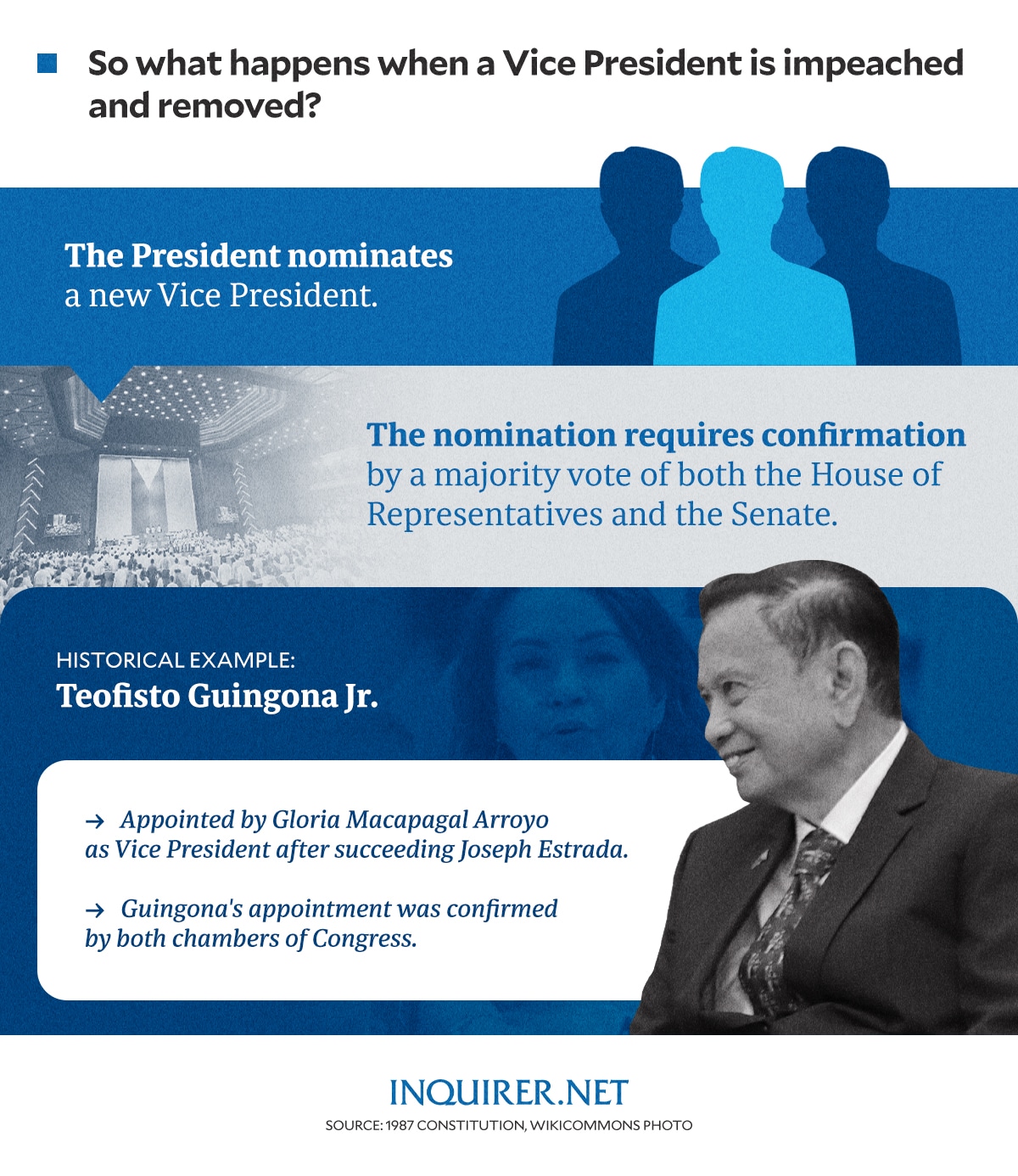Explainer: What happens when the VP is impeached?
MANILA, Philippines — Amid controversies surrounding Vice President Sara Duterte’s behavior at recent budget hearings, where she was criticized for acting like a “spoiled brat,” she now faces another challenge as a progressive group prepares to push her impeachment.
For several months, there have been discussions about a potential impeachment complaint against Duterte. Although she has repeatedly claimed that lawmakers were considering the complaint, key House leaders denied this, stating that their focus was on preparing the 2025 budget.
During budget deliberations for the Office of the Vice President on August 27, Duterte mentioned that a House member had a recording of lawmakers allegedly discussing her impeachment.
READ: VP Duterte on impeachment: House lawmaker has recordings of talks
On September 18, she referred to a House committee hearing as a rehearsal for impeachment proceedings against her.
READ: VP Sara Duterte: House hearing on OVP a dry run of impeachment
Despite these claims, lawmakers have asked Duterte to identify those involved, asserting that no such discussions are taking place. Deputy Speaker David Suarez and other lawmakers expressed disappointment over Duterte’s absence from her office’s budget hearings but clarified that impeachment is not being considered.
But Bagong Alyansang Makabayan (Bayan) suggested impeachment might be necessary to hold Duterte accountable for alleged fund misuse. On September 26, Bayan chairperson Teddy Casiño confirmed that the group might file an impeachment complaint once Congress resumes session in November, pending finalization.
READ: Impeaching VP Sara Duterte ‘necessary’ – Bayan
READ: Bayan drafting impeachment complaint vs VP Sara Duterte – Casiño
This potential development raises significant questions: What exactly would happen if the Vice President of the Philippines was impeached? How would the process unfold, and who would step into the position if the impeachment succeeds?
Who can be impeached?
Under the 1987 Philippine Constitution, impeachment is a legal process to remove certain high-ranking officials for committing serious offenses. Article XI, Section 2 of the Constitution specifically lists the following officials as subject to impeachment:
- The President
- The Vice President
- Members of the Supreme Court
- Members of Constitutional Commissions (such as the Commission on Elections)
- The Ombudsman
These officials can be removed from office only through impeachment for committing impeachable offenses, which include:
- Culpable violation of the Constitution: A serious breach or disregard of the Constitution.
- Treason: Betraying the country, especially by aiding an enemy during war.
- Bribery: Giving or receiving something of value in exchange for influencing a public official’s actions.
- Graft and corruption: The misuse of public office for personal gain.
- Other high crimes: Any serious criminal offenses that harm the nation or government.
- Betrayal of public trust: A broad term that can include actions that severely damage the integrity of public office.
Impeachment process
The impeachment process for a Vice President, as outlined in Section 3, Article XI of the 1987 Constitution, follows a specific set of steps. These steps begin with filing a verified complaint and end with a Senate trial.
- Filing of impeachment complaint
An impeachment complaint can be initiated by any member of the House of Representatives or by a citizen with a House member’s endorsement. The complaint must specify the reasons for impeachment.
- House committee deliberation
Once filed, the complaint is referred to the House Committee on Justice. This committee assesses whether the complaint is valid. If they find merit, they will hold hearings and investigate the allegations.
After their investigation, the committee must submit a report to the House within 60 session days. This report includes a resolution, which will be considered by the House within 10 session days of receipt.
- House vote
Following the committee’s review, the members of the House of Representatives vote on whether to adopt the articles of impeachment. A one-third vote of all members is required to move the process forward.
- Senate trial
If the House approves the articles of impeachment, the case moves to the Senate, which acts as the impeachment court. According to Section 3(7), “[t]he Senate shall have the sole power to try and decide all cases of impeachment. When sitting for that purpose, the Senators shall be on oath or affirmation.”
A two-thirds majority of all senators is needed to convict and remove the Vice President, which means at least 16 out of 24 senators must vote in favor of impeachment.
If convicted, the Vice President will be removed from office and disqualified from holding any position in the government. The Constitution likewise noted that the individual may still face prosecution and punishment according to the law.
Who fills the spot after impeachment?
If the Vice President is impeached and removed from office, Section 9 of Article VII of the Constitution comes into play. This section grants the President the authority to nominate a new Vice President, who must then receive confirmation from both the House of Representatives and the Senate.
“Whenever there is a vacancy in the Office of the Vice-President during the term for which he was elected, the President shall nominate a Vice-President from among the Members of the Senate and the House of Representatives who shall assume office upon confirmation by a majority vote of all the Members of both Houses of the Congress, voting separately,” the 1987 Constitution stated.
In 2001, Gloria Macapagal Arroyo appointed then-Senate Minority Leader Teofisto Guingona Jr. as her Vice President after her succession to the presidency, following the ouster of Joseph Estrada.
READ: What Went Before: Guingona, Estrada sons like fathers
In a televised address, Arroyo explained her decision to choose Guingona from a list of six candidates, highlighting his prominent role in the movement that led to Estrada’s removal from office in January of that year.
“Let us not forget that it was his ‘I Accuse’ privilege speech that helped trigger the events that led to EDSA Dos,” said Arroyo.





















